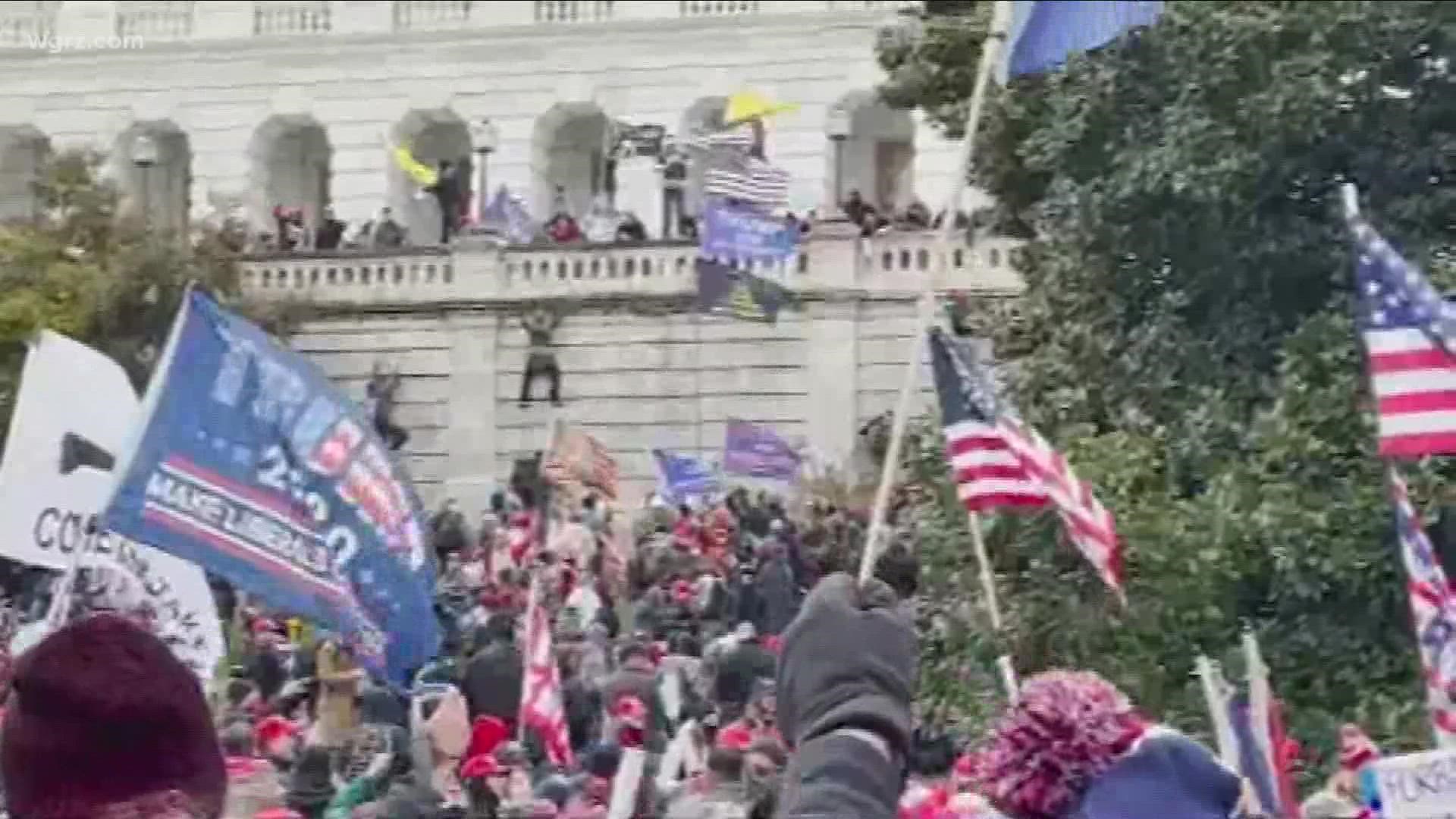BUFFALO, N.Y. — In the year since January 6, 2021, hundreds of people have been charged for their alleged involvement in the riot at the U.S. Capitol. That includes nine people from Western New York and the Rochester area.
But what happened that day also impacts democracy. That's why 2 On Your Side had a conversation with Jim Gardner on Thursday. Gardner is a professor at the University at Buffalo and an expert on democracy and constitutional law.
"Just earlier this week, Donald Trump endorsed Viktor Orban, the dictatorial prime minister of Hungary, for another term, so that is clearly the aspiration of at least that portion of the Republican Party to achieve. A highly centralized executive that is unchecked by constitutional norms, unchecked by courts, and impossible to dislodge through democratic processes. That seems to be the aim, and if Republicans are able to get their way, then I think that's our end, that's our end game," Gardner said.
Gardner says for people who want to preserve democracy, they need to improve the performance of our democratic system and address the problems we face as a nation.
Gardner say it is still far too early to know the entire impact that day will have on democracy in America.
"What people who are committed to democracy need to do is to show that democracy can actually tackle these problems, and so climate change, inequality, these absolutely need to be addressed," Gardner said.
Gardner went on to say the Biden Administration needs to take the lead in addressing these long term issues.
We also spoke with Jacob Neiheisel about January 6, 2021.
"When you see history in real time, it's really hard to know its full extent," Neiheisel said.
But a year later, Neiheisel, an associate professor of political science at the University at Buffalo, says we can already see how the Capitol riot has impacted politics in the United States.
"How you talk about, how you describe the events of January 6 is something of a test for many Republicans and Republican candidates, and I think it does signal that there's a particular direction which the party is moving, and that's one that doesn't particularly want to confront January 6 and the role Trump might have played in the events that transpired," Neiheisel said.
Neiheisel says this was violence in an unexpected place making it a different level of conflict than we've seen the in the past in this country, but he remains hopeful about the future.
"There are ways back even from really horrendous, horrific divisions, so I think that there has to be a way back from this as well, but that being said, I don't see a drastic change from the conditions that gave rise to January 6 with the possible exception of Donald Trump having somewhat less of a megaphone, somewhat less of a platform than he did back then. All of the other catalyzing forces are still there," Neiheisel said.

